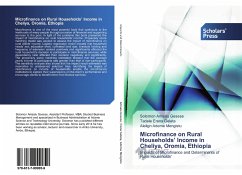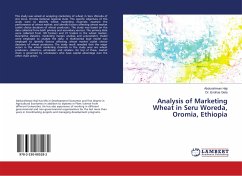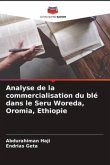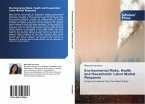Microfinance is one of the most powerful tools that contribute to the livelihoods of many people through provision of financial and supporting services to the poor. In light of the problems this book presented the impact of microfinance on rural households' income. Propensity score matching model was applied to assess the impact of microfinance on rural clients' income. Logistic regression model showed that household heads' sex, education level, cultivated land size, livestock holding and frequency of extension contact positively and significantly affected the rural household's decision to participate in microfinance services; while dependency ratio affected their decision negatively and significantly. The propensity score matching estimation showed that the average yearly income of participants was greater than that of non-participants. The sensitivity analysis also shows that the impact result estimated was insensitive to unobserved selection bias. Identifying the impact of microfinance on income of households enable the microfinance institutions to explore their supervisions on the client's performance and encourage clients to benefit more from finance services.
Bitte wählen Sie Ihr Anliegen aus.
Rechnungen
Retourenschein anfordern
Bestellstatus
Storno








